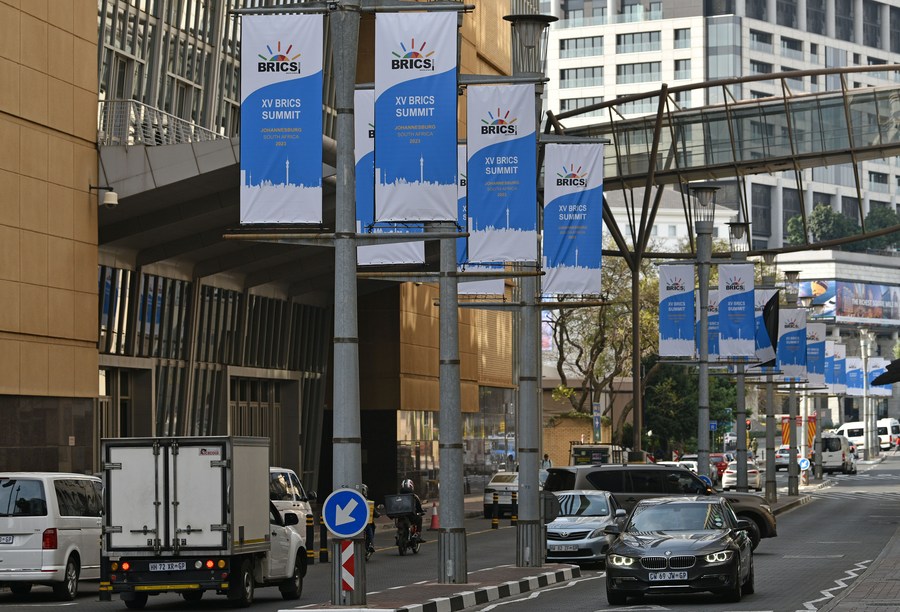BRICS expansion a win for multilateralism, shared prosperity
By Adhere Cavince | China Daily Global | Updated: 2023-08-28 09:17

Among the key issues at the 15th BRICS Summit, which was held in South Africa from Tuesday to Thursday, was the desire to open the group to more countries.
More than 40 countries expressed interest in joining BRICS, elevating its role as an alternative platform for inclusive dialogue on global governance and development. Six countries — Argentina, Egypt, Ethiopia, Iran, Saudi Arabia and the United Arab Emirates — were invited to join and are set to be full members effective Jan 1. This is a major win for multilateralism and South-South cooperation.
BRICS, the grouping of the major emerging economies of Brazil, Russia, India, China and South Africa, has become a strong galvanizing force, winning the support and approval of many countries, especially in the developing Global South. The increase in the number of countries keen to join the BRICS family is driven by a number of factors.
The BRICS economies collectively account for 40 percent of the world's population and over 26 percent of the global economy. Joining the forum offers countries the potential for increased economic opportunities, trade and investment. Access to these large markets can promote export diversification and stimulate the economic growth and development of emerging economies.
In an increasingly polarized world, BRICS offers a new path to fashion a more inclusive global economic and political order, rather than the order dominated by Western powers. Joining BRICS allows countries to align themselves with a group that seeks to promote multipolarity and a more equitable international system. It also provides an opportunity to enhance geopolitical influence and strengthen their voice in global decision-making forums.
BRICS has also initiated a number of mechanisms for development cooperation among its members. These include the New Development Bank and the Contingent Reserve Arrangement. These mechanisms provide financial assistance and support for infrastructure development projects and other initiatives in BRICS countries and beyond.
The development bank has so far committed over $33 billion to more than 96 infrastructure projects. In May, the bank announced that it will fund a greater share of the project in local currencies. Similarly, as a financial safety net, the Contingent Reserve Arrangement provides a framework for member countries to provide mutual support in times of financial crisis by offering liquidity support. Such utility and currency liberalization have proved quite attractive for countries seeking developmental assistance.
BRICS represents a significant force in South-South cooperation, which refers to collaboration on and exchange of resources, technology, knowledge and culture among developing countries. BRICS countries often coordinate their positions on global issues, including trade, climate change and reform of global governance institutions. By joining BRICS, countries can engage in collective bargaining and negotiations with other major economies, giving them a platform to advocate for their interests on a global scale.
These factors collectively act as pull factors for many countries to join BRICS. It is important to note that the majority of the countries interested in joining are from Africa. Gleaming as a result of productive development cooperation with China, African economies appreciate the need to engage with countries that have similar development aspirations.
President Xi Jinping's message of seeking development through solidarity, while jointly shouldering responsibility for global peace, captured the essence of the BRICS framework. Several agreements reached during the summit will play an important role in anchoring economies while fostering amity among countries.
BRICS has created momentum for a more inclusive development. It has won hearts across the world. Many of the development concerns of emerging economies can be addressed through strong and functional BRICS leadership. This is particularly important as many countries face economic reconstruction after the impacts of the COVID-19 pandemic, the climate crisis and hostilities in Eastern Europe.
The writer is a scholar of international relations with a focus on China-Africa development cooperation.
























